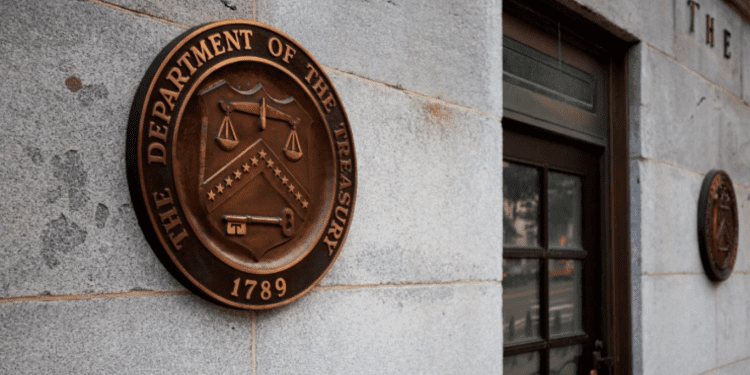- The U.S. Treasury’s Office of Foreign Assets Control (OFAC) has sanctioned an Ethereum wallet linked to the Sinaloa Cartel’s money launderer, Mario Alberto Jimenez Castro.
- The wallet has facilitated transfers in stablecoins worth tens of thousands, primarily between Coinbase and Binance.
- This action aligns with increasing concerns over cryptocurrency’s role in the illegal narcotics trade, notably fentanyl trafficking.
In a striking move that signifies the heightened scrutiny on cryptocurrency transactions, the U.S. Treasury Department’s Office of Foreign Assets Control (OFAC) recently amended its sanctions list to include ten individuals linked with illicit narcotics trade. Notably, one among these individuals has been found to operate an Ethereum wallet.
This Ethereum address is allegedly connected to Mario Alberto Jimenez Castro (alias “Kastor”), a 34-year-old from Mexico, associated with the infamous Sinaloa cartel. Though the wallet has a modest balance of 0.017 ETH ($27) at present, it has facilitated several significant transfers in stablecoins like Tether (USDT) and USD Coin (USDC) in the past. A large part of its transaction history reveals money coming in from Coinbase, a leading global crypto exchange, which was later sent to Binance.
The Reach of the Crypto-Narcotics Network
Mario Alberto Jimenez Castro isn’t just another name in the drug trade. According to the State Department, he’s a key player in a vast money-laundering organization that uses cryptocurrencies. This organization allegedly moves money from the sale of the dangerous opioid, fentanyl, across the Mexican border. The funds, before they reach their intended recipients, often pass through various major American cities like New York City, Boston, and Denver.
This isn’t the first time that the nexus between cryptocurrencies and illegal activities has been highlighted. Back in 2019, a White House report pointed out that major cryptocurrencies like Bitcoin and Ethereum were the main funding mechanisms related to fentanyl trafficking. Furthermore, Jiminez Castro’s addition to the sanctions list sheds light on a growing trend: government-blacklisted crypto addresses linked to criminal activities.
The Implications of Sanctions
Sanctions imposed by the U.S. Treasury have profound implications. While these blacklisted addresses can technically still operate, interactions with them become illegal. This means major crypto exchanges that inadvertently interact with these addresses might face legal repercussions.
It’s worth noting that the effects of these sanctions are far-reaching. With the public disclosure of Castro’s Ethereum wallet address, tracking his crypto transactions becomes more feasible. Such measures aim to hamper the ability of criminals to utilize crypto platforms for illegal fund transfers and trades.
Yet, these sanctions are just one step in a broader strategy. Key figures like Massachusetts Senator Elizabeth Warren have emphasized the role of cryptocurrency in supporting the global fentanyl trade. In her words, “Crypto is helping fund the fentanyl trade, and we have the power to shut that down.” Warren and her peers are actively seeking more robust legislation like the Digital Asset Anti-Money Laundering Act, which aims to prevent money laundering in the crypto space.














